In simple terms — it’s how you turn your agents into customer heroes.
The right training helps them handle tough conversations, stay cool under pressure, and actually solve problems — not just read scripts.
But let’s be honest…
Most training isn’t built for today’s call centers.
You hire fast. Ramp faster. And somehow expect agents to hit KPIs with just a few days of onboarding.
No wonder calls feel robotic. QA scores dip. And your best reps? Burn out fast.
It’s frustrating — for you, your team, and your customers.
That’s why this guide exists.
We’re going to break down what customer service training should look like in 2025.
Think real-world coaching frameworks, quick-win strategies, and tech (like Enthu.ai) that actually help you coach smarter, not harder.
Let’s get into it.
A. What is customer service training?
Customer service training is the process of teaching support teams the skills, tools, and behaviors needed to handle customer interactions with confidence.
It includes communication, product knowledge, empathy, and problem-solving — all aimed at improving customer satisfaction, building trust, and ensuring a consistent, high-quality service experience across every touchpoint.
B. Why is customer service training important
What captures your attention more as a shopper – the marketing strategies or the quality of customer service?
Chances are, it’s the latter that lingers in your memory.
We cannot overstate the importance of call center quality assurance. It is vital for analyzing, overseeing, and assessing agents’ performance and the customer service experience.
Call center QA aims to ensure a consistent, high-quality customer experience. This is achieved through well-crafted call center scripts.
Here are some strong reasons to invest in a good customer service training program.
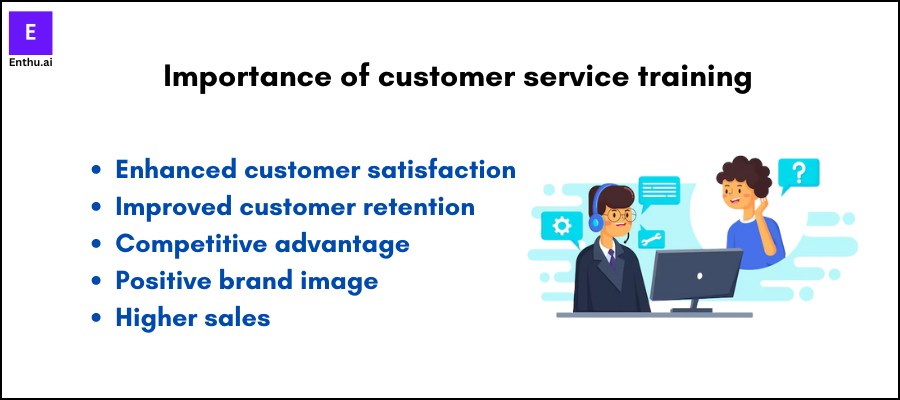
1. Enhanced customer satisfaction
Well-trained customer service reps can quickly solve customer issues. This ensures high call quality.
This efficiency leads to happier customers. They value the quick fixes to their problems.

This highlights the pivotal role of well-trained teams in ensuring customer satisfaction and loyalty.
2. Improved customer retention
When customers receive exceptional service, they are more likely to return.
Loyalty isn’t just about repeat purchases. It means customers recommend your brand to others.
This statistic shows that investing in training is smart. It’s not just an expense. It can greatly boost your bottom line.
3. Competitive advantage
In today’s competitive business landscape, where products and services can be similar, customer service emerges as the primary differentiator.
Exceptional customer service sets your brand apart from competitors. It creates a unique, positive image.
Thus, investing in training is instrumental in maintaining a competitive edge.
4. Positive brand image
A positive brand image requires more than great products. It depends on customers’ interactions with your team.
When customers feel valued, they share their experiences more. This includes online and word-of-mouth reviews.
It boosts your brand’s reputation and fosters lifelong customer loyalty.
5. Higher sales
Exceptional customer service builds customer loyalty and translates directly into increased sales.
Personalized attention and support make customers more likely to buy again.
Trust, built through good service, encourages customers to add items to their cart or buy premium products on their next visit. They know they will get better support.
C. What should be included in customer service training?
There are various approaches to customer service training in 2025, including:
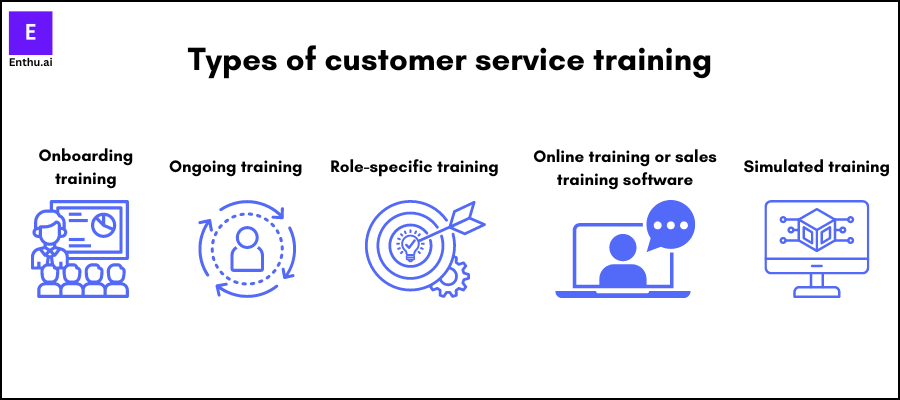
1. Onboarding training
Onboarding training is a crucial component for new hires. It serves as the introduction to your company’s culture, policies, and basic customer service skills.
New employees must know your organization’s values and ethos. They also need basic skills for customer interactions.
This initial training is pivotal in setting the tone for their journey within your company.
2. Product/Service training
Employees collect detailed knowledge of the company’s goods and services.
Customer service training prepares support agents to:
- Answer complex queries.
- Provide correct information.
- Make suitable recommendations.
It frequently includes hands-on practice and extensive documentation for future reference.
3. Ongoing training
Ongoing training keeps your customer service team up-to-date. It covers the latest developments.
This includes regular updates on new products, services, and evolving customer service techniques.
In this fast-paced world, we must stay current. It’s key to providing excellent service and keeping customers happy.
4. Role-specific training
Tailoring training to specific roles within your customer service department is a strategic move.
Different roles, such as chat support, email support, or phone support, require unique skill sets.
Role-specific agent training ensures each team member has the skills and knowledge to excel in their role.
This contributes to the success of the excellent customer service department.
5. Communication skills training
Effective communication is critical in customer service.
It covers both verbal and written skills. It teaches employees to actively listen, clarify their responses, and use constructive language.
It also covers tone of voice, body language, and cultural awareness. This will help users interact with diverse consumer groups.
6. Online training or sales training software
Online training leverages e-learning platforms and resources to provide flexibility in training schedules.
It’s a convenient way to deliver training to a dispersed or remote workforce.
In 2025, digital tools will let employees access training materials, videos, and interactive modules at their own pace.
This makes it easier to accommodate different learning styles and schedules.
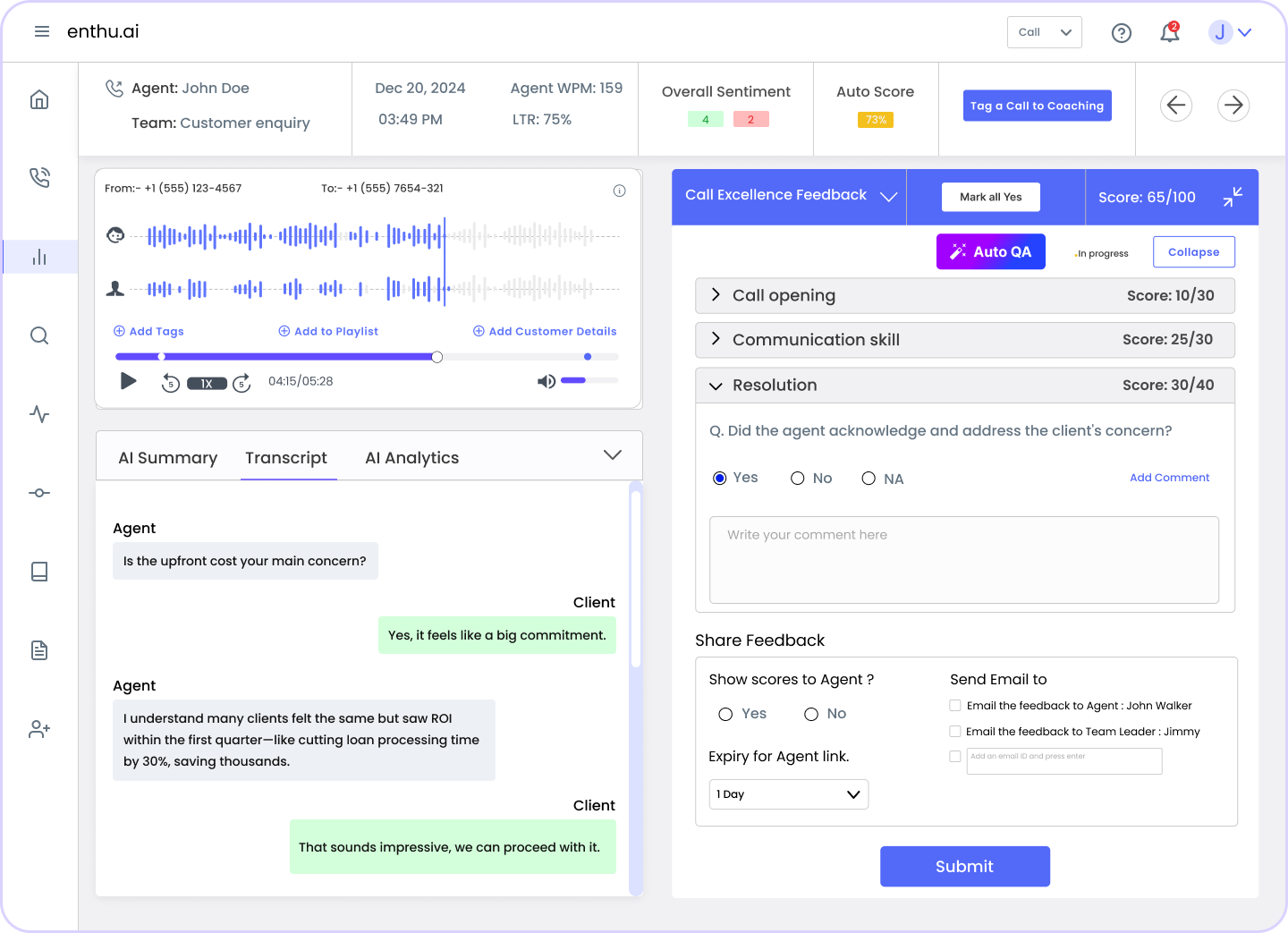
7. Simulated training
Simulated training creates real-life scenarios for employees to practice customer interactions. It takes learning to the next level.
This immersive approach allows team members to hone their skills in a risk-free environment.
Simulated training is vital. It prepares your team for complex, high-pressure situations. It builds their confidence and skills.
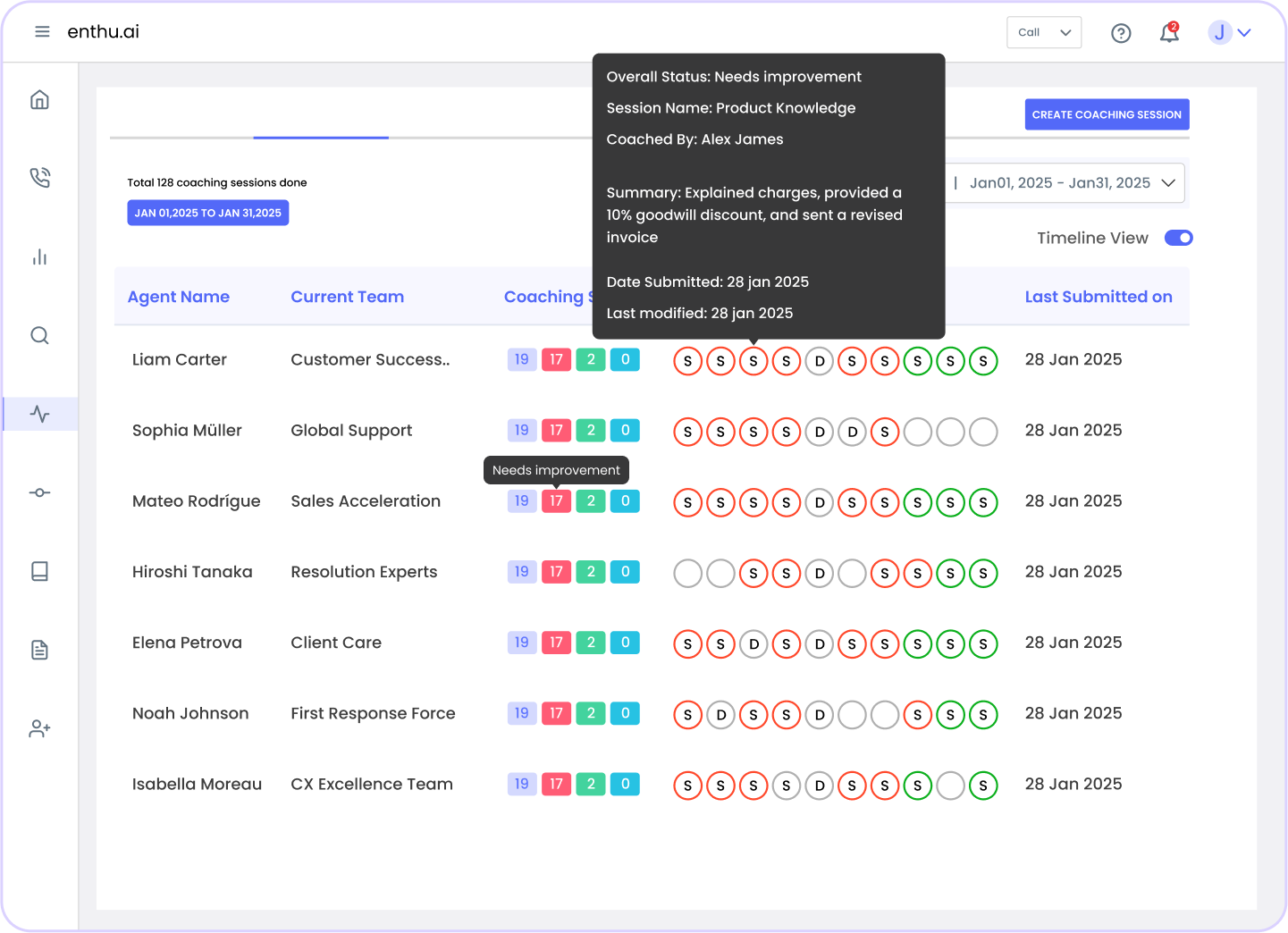
8. Soft skills training
Beyond technical expertise, customer service personnel must have great interpersonal skills.
Empathy training helps staff understand and relate to consumer emotions. They must also be patient and flexible to handle unexpected situations and diverse customer needs.
This course promotes a customer-centric approach to service.
9. Technical training
Technology is key to modern customer service. It runs CRM systems and communication platforms.
Customer service training ensures that staff are comfortable using the software. They can then handle client contacts effectively.
It includes system navigation, data input, and troubleshooting typical technical problems.
D. Which customer training skills should you cover in a contact center?
1. Hard Skills
- Product knowledge: A deep understanding of your products or services is essential for addressing customer inquiries accurately.
- Technical skills: Proficiency in using the tools and systems to provide support effectively.
- Problem-solving: Teaching your team how to analyze customer issues and provide solutions is crucial.
- Effective communication: Training on how to convey information empathetically and professionally.
- Multi-channel proficiency: The ability to handle inquiries through various channels like phone, email, chat, and social media.
2. Soft Skills
- Empathy: Empathizing with customers and demonstrating a genuine concern for their issues.
- Active listening: Training your team to listen carefully to customer concerns and respond appropriately.
- Patience: Especially valuable when dealing with frustrated or irate customers.
- Conflict resolution: Equipping employees to handle disputes and difficult conversations.
- Time management: Prioritizing tasks and managing time efficiently to meet customer needs.
- Adaptability: The ability to adjust to different customer personalities and situations.
- Teamwork: Collaboration and coordination within your customer service team.
- Cultural sensitivity: Recognizing and respecting cultural differences in customer interactions.
- Stress management: Strategies for coping with high-pressure situations
- Upselling/cross-selling: Techniques for increasing sales while assisting customers.
Conclusion
In today’s competitive landscape, exceptional customer service is crucial for business success.
Quality service drives repeat purchases, and comprehensive training is key to meeting customer expectations.
This blog highlighted the importance of training, from onboarding to role-specific skills.
Leveraging tech and real-world simulations will ensure your team is prepared.
As we move into 2025, investing in customer service training will strengthen your brand, retain customers, and boost sales.
Every interaction counts — make it memorable and keep customers coming back.
FAQs
1. What type of training is needed for customer service?
Effective customer service training includes product knowledge, handling difficult customers, communication skills, time management, problem-solving techniques, empathy training, active listening, and regular updates on products/services to ensure professional and efficient customer interactions.
2. What are the 5 most important skills in customer service?
The five most important skills in customer service are
- Communication Skills: Clear and effective verbal and written communication.
- Empathy: Understanding and sharing the feelings of customers.
- Problem-Solving: Quickly and effectively resolving issues.
- Patience: Staying calm and composed with challenging customers.
- Product Knowledge: In-depth understanding of the products or services offered.
3. What are the 4 basics of customer service?
The four basics of customer service are courtesy, professionalism, responsiveness, and knowledge. Be polite and respectful, maintain a professional demeanor, address issues promptly, and have a thorough understanding of products and services.
4. What is customer service training?
Customer service training is a structured program aimed at equipping employees with the knowledge, skills, and attitudes necessary to provide outstanding service to customers. This training includes various learning methods and covers everything from basic service etiquette to advanced problem-solving techniques.

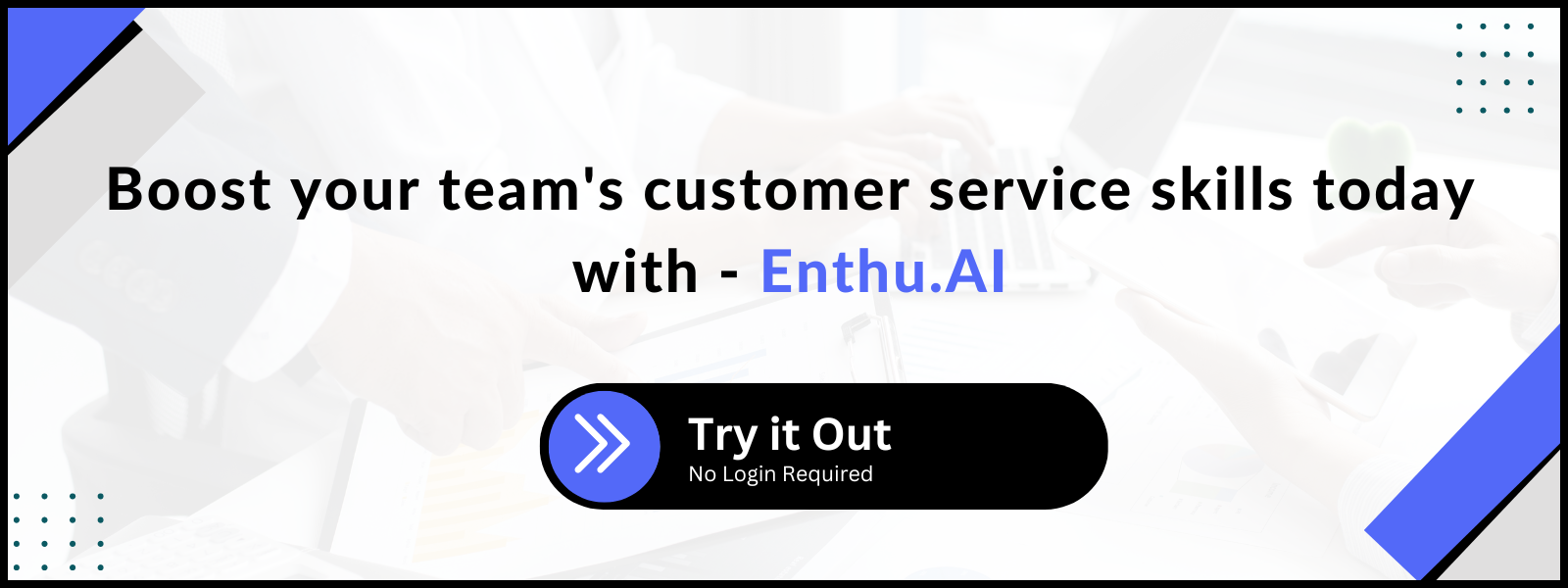


 On this page
On this page








